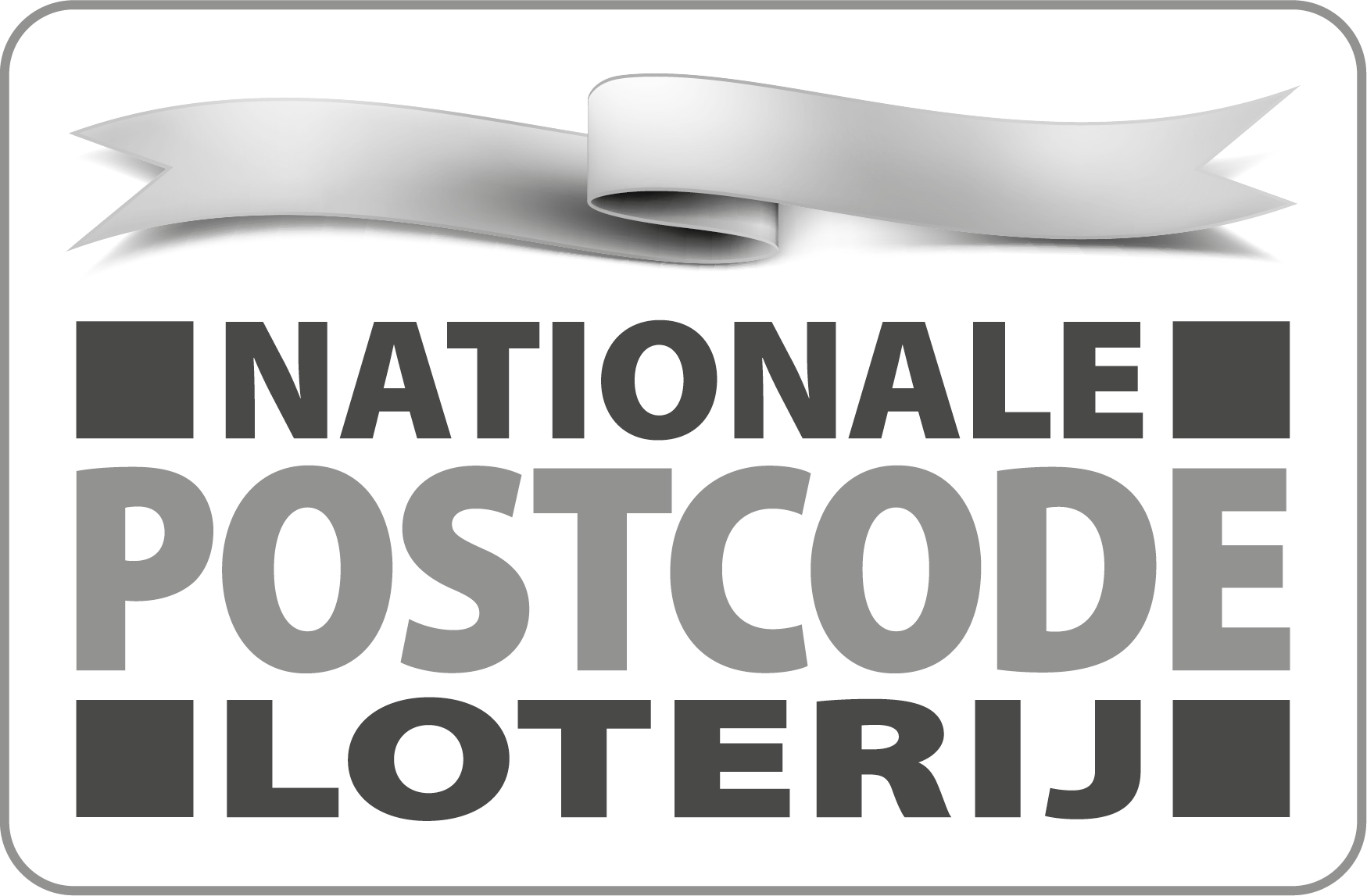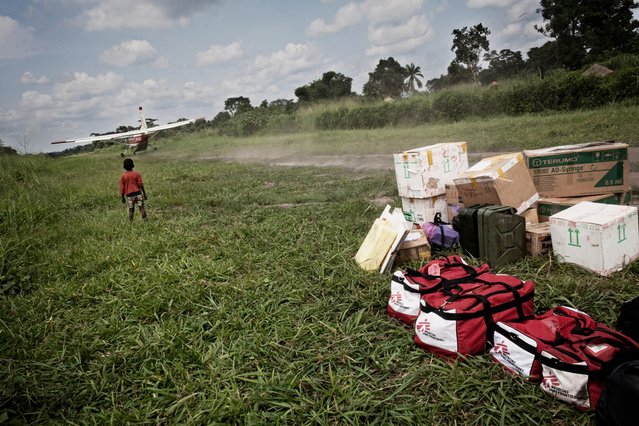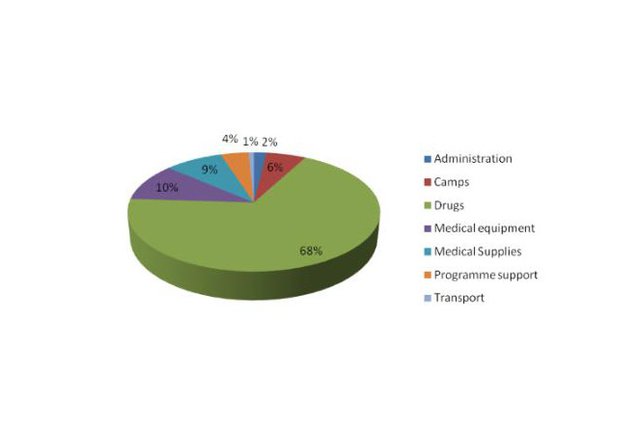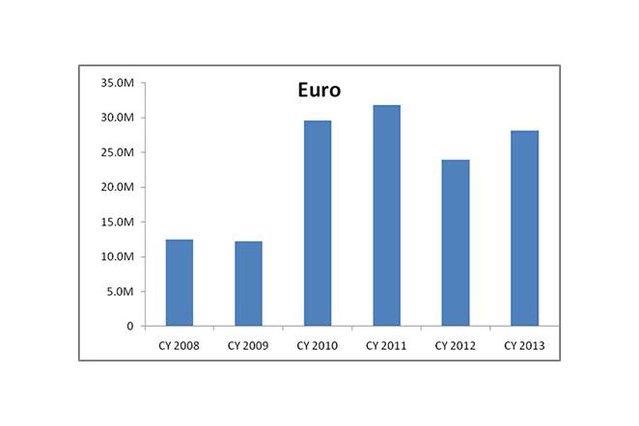MSF supplies
An effective supply process is essential for MSF to carry out its medical humanitarian operations. MSF supply chains have therefore been set up in such a way as to guarantee that medicines, vaccines, medical equipment and therapeutic feeding products are made available at the right time and place, while meeting strict quality specifications. MSF projects are required to procure medical supplies internationally, and must do so through one of three European MSF supply centres: MSF Logistique, MSF Supply and the MSF Amsterdam Procurement Unit. Only a few, specifically approved, exceptions have been made. The supply chains to our projects involve mainly medical supplies, including drugs and specialized food, and therefore pose specific challenges. Non-medical products are important, but represent a smaller proportion of our total turnover.
Buying entity
The unit is a buying entity, i.e. most field order lines result in a purchase order to suppliers. Only a limited number of items are kept in stock.
MSF drugs and licences
Dutch law requires the MSF Amsterdam Procurement Unit to have a medical wholesaler licence to buy pharmaceutical products and distribute these to MSF's aid projects. This licence implies adherence to Good Distribution Practices (GDP), a set of guidelines aimed at the correct distribution of pharmaceutical products for human use. GDP is a quality assurance system that includes requirements for purchase, receipt, storage and transportation of pharmaceutical products. Where applicable the MSF Amsterdam Procurement Unit follows these requirements.
The MSF Amsterdam Procurement Unit’s pharmaceutical establishment licences include:
- a wholesale licence: this licence authorizes the unit to procure and deliver medicines and requires it to be GDP-compliant. The MSF Amsterdam Procurement Unit’s Qualified Person also maintains a Quality Handbook with the relevant procedures.
- dispensation from the Dutch Opium Act for trade-related purposes, which allows the unit to stock and supply controlled substances.
Furthermore, the European Community Humanitarian Office (ECHO) has granted the unit the P control mechanism (under this mechanism, an organisation has the responsibility to apply its own procurement procedures and is not subject to contractual limits on funding in relation to its actions). Finally, the Global Fund to Fight AIDS, Tuberculosis and Malaria allows MSF OCA and MSF Operational Centre Geneva (OCG) projects in Myanmar (Burma) to be supplied by the unit with drugs and other medical supplies funded by its grant programmes.
The MSF Amsterdam Procurement Unit and its work
To ensure the lowest costs compatible with maximum operational effectiveness, careful planning and choices have to be made. Accordingly the MSF Amsterdam Procurement Unit carefully considers its choice of transport according to the type of product and its urgency. MSF frequently employs containerized transportation, and uses means of transport ranging from ships, ships, aircraft, trains and trucks (including refrigerated trucks) to local transport such as locally contracted trucks, MSF-owned 4x4 Land Cruisers and trucks and hired light aircraft. The existing infrastructure in most of our project countries is very poor to non-existent. In South Sudan, with next to no infrastructure, we were able to send more than 154 tonnes of medical and other relief supplies to our emergency aid projects in 2013. In Central African Republic, we were able to send over 151 tonnes of emergency supplies. In 2013, MSF OCA sent out to its field projects 1,485 shipments with a value of 28.2 million euros, of which 84% arrived within the time limit requested by the projects. Of all the goods shipped to our projects 60% was transported over sea, on road and 40% by air.
The following chart and graph respectively show the break-down of the order volume in 2013 in different categories and the turnover of the unit in the last 6 years.
The MSF Amsterdam Procurement unit is charged with ensuring the availability of urgently needed and essential supplies in the most efficient and effective manner. It has a staff of around 20 and consists of:
- a procurement coordinator
- a medical devices specialist
- operational procurement officers
- order expeditors
- a procurement administrator
- a procurement pharmacist
- a procurement process officer/transport manager
- a stock manager
- a tactical operational procurement officer
- tactical procurement officers.
About MSF
Médecins Sans Frontières (MSF-Holland, Artsen zonder Grenzen) is an independent medical emergency relief organization that provides assistance to people worldwide, regardless of their background, religion or political convictions. Above all, we aim to save lives and to offer medical care to victims of disasters, wars and epidemics. Sending our own teams (doctors, nurses and other specialists) enables us to work as swiftly and effectively as possible. Working together with local staff, they give direct support to the population. In 1999 Médecins Sans Frontières was awarded the Nobel Peace Prize for its medical work as well as for its advocacy efforts on behalf of people and populations in danger.





